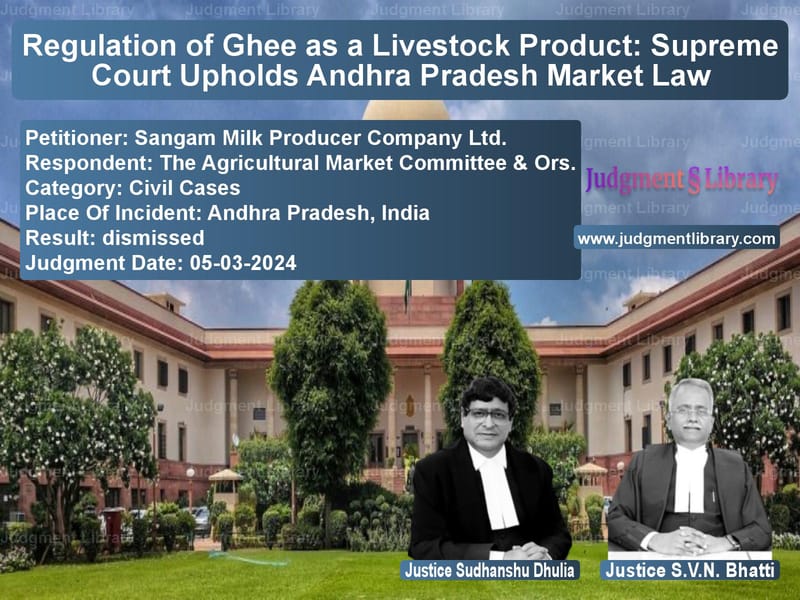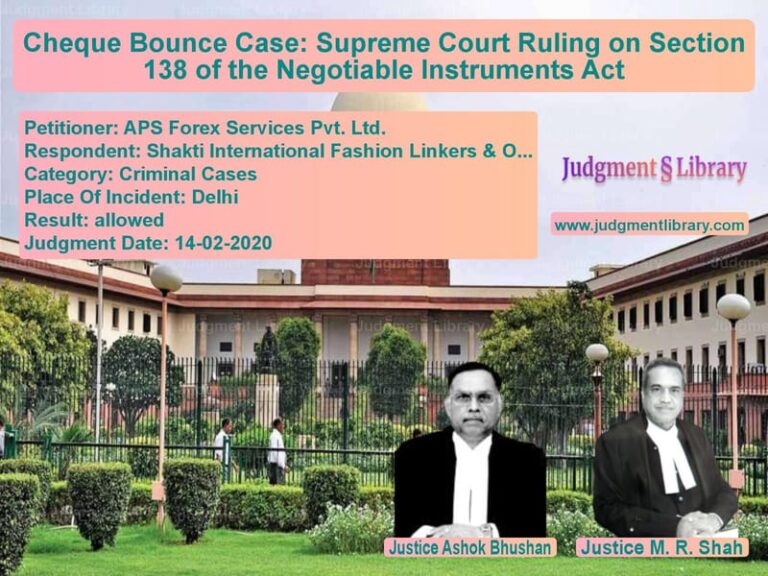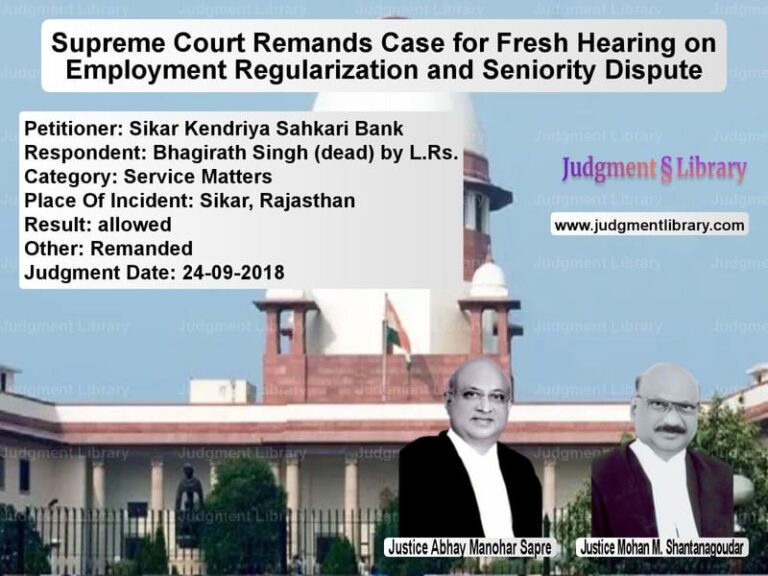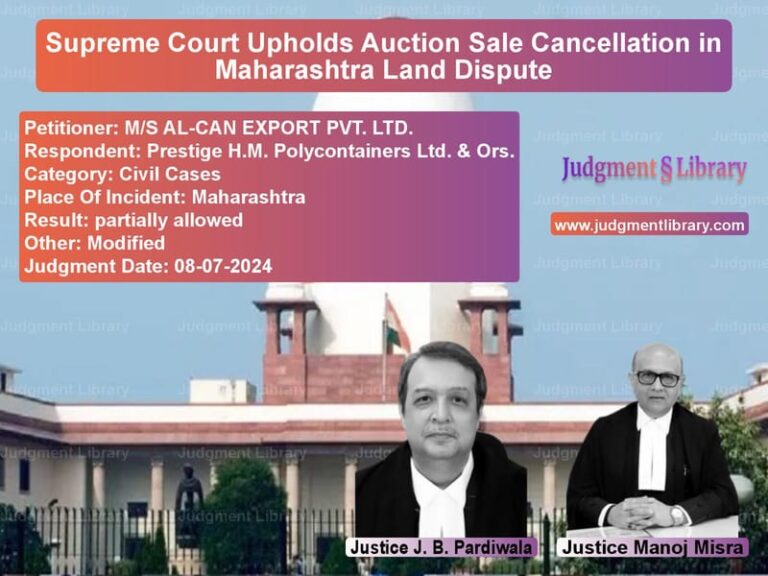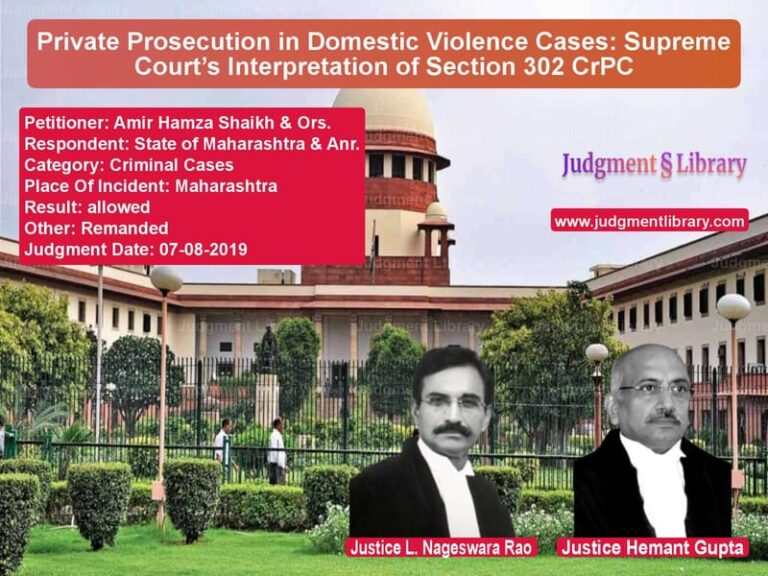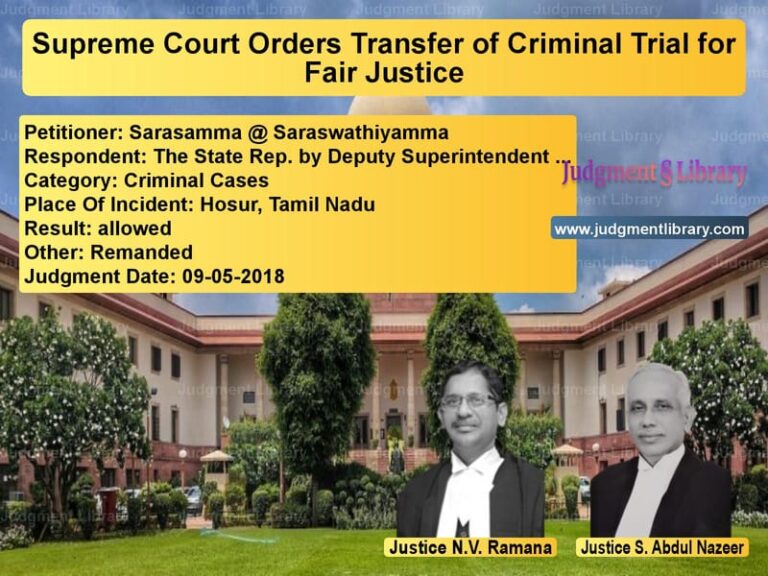Regulation of Ghee as a Livestock Product: Supreme Court Upholds Andhra Pradesh Market Law
The Supreme Court of India recently delivered a significant judgment in the case of Sangam Milk Producer Company Ltd. v. The Agricultural Market Committee & Ors., addressing whether ‘ghee’ falls under the category of ‘products of livestock’ as defined under the Andhra Pradesh (Agricultural Produce and Livestock) Markets Act, 1966. The dispute revolved around the legality of a government notification that regulated the sale and purchase of ghee within notified market areas and levied a market fee on it.
The appellants, who were dairy producers and traders, challenged the inclusion of ghee as a livestock product and contested the procedural validity of the notification issued in 1994. The Andhra Pradesh High Court had earlier upheld the notification, leading to the appeal before the Supreme Court.
Petitioners’ Arguments
The appellants raised two main objections:
- Ghee is not a ‘product of livestock’: The petitioners argued that ghee, being a processed dairy product, does not directly qualify as a product of livestock. They contended that it undergoes significant transformation from milk and should not be regulated under the Act.
- Violation of procedural requirements: The notification issued in 1994 was challenged on the ground that it did not follow the prescribed process under Section 3 of the Act. The appellants claimed that no draft notification was published, and no objections were invited from stakeholders before the final notification.
Respondents’ Arguments
The Agricultural Market Committee and the State of Andhra Pradesh defended the notification, arguing:
- Ghee is derived from livestock: The government maintained that ghee is an animal husbandry product, falling under the definition of ‘products of livestock’ as per Section 2(xv) of the Act.
- Legal compliance with Section 4: The notification was issued under Section 4 of the Act, which does not require the same procedural formalities as Section 3. The respondents argued that the process followed was in line with the statutory framework.
- Market fee is justified: Since ghee was included in the notified market areas, traders and producers were required to pay the market fee for using the market infrastructure and regulatory mechanisms.
Supreme Court’s Observations
The Supreme Court examined both arguments and upheld the Andhra Pradesh High Court’s ruling. The key observations were:
- Ghee qualifies as a product of livestock: The Court reasoned that milk is an undisputed livestock product, and since ghee is derived from milk, it logically follows that it remains within the category of livestock products.
- Procedural requirements under Section 3 and Section 4 differ: The Court clarified that Section 3 of the Act governs the declaration of notified areas, requiring a draft notification and public consultation. However, Section 4 pertains to the regulation of specific market areas and does not mandate the same procedural steps.
- Market fee obligation remains: The Supreme Court ruled that market fees were applicable from the date of the 1994 notification. However, recognizing the financial burden on traders, the Court allowed payment in four equal installments over two years.
Key Judicial Remarks
The Supreme Court, reinforcing its decision, stated:
“Scientifically or common sense point of view, even though ghee is not directly obtained from milk (which is certainly a product of cow/buffalo), it is certainly a product of a product of livestock. It would be rather illogical or irrational to say that ghee is not a milk/dairy product or to say that it is not a product of livestock.”
On the procedural aspect, the Court emphasized:
“There is a basic difference between the notification which has to be made under Section 3 of the Act and the notification which has to be made subsequently under Section 4 of the Act. What has to be done under Section 3 is a one-time measure where the Government notifies an area where purchase and sale of agricultural produce, livestock and products of livestock can be made. This is a one-time exercise.”
Final Judgment
The Supreme Court dismissed the appeals, upholding the Andhra Pradesh High Court’s ruling and affirming the validity of the 1994 notification. The interim protection granted earlier against the collection of market fees was vacated, and traders were directed to pay the fees with an installment option.
Conclusion
This judgment sets a precedent in agricultural and livestock market regulation, reinforcing the government’s authority to regulate market activities through legislative mechanisms. It also clarifies the legal distinction between different sections of regulatory statutes and affirms that derived products can still be classified under their primary source category.
Petitioner Name: Sangam Milk Producer Company Ltd..Respondent Name: The Agricultural Market Committee & Ors..Judgment By: Justice Sudhanshu Dhulia, Justice S.V.N. Bhatti.Place Of Incident: Andhra Pradesh, India.Judgment Date: 05-03-2024.
Don’t miss out on the full details! Download the complete judgment in PDF format below and gain valuable insights instantly!
Download Judgment: sangam-milk-producer-vs-the-agricultural-mar-supreme-court-of-india-judgment-dated-05-03-2024.pdf
Directly Download Judgment: Directly download this Judgment
See all petitions in Contract Disputes
See all petitions in Consumer Rights
See all petitions in Public Interest Litigation
See all petitions in Judgment by Sudhanshu Dhulia
See all petitions in Judgment by S.V.N. Bhatti
See all petitions in dismissed
See all petitions in supreme court of India judgments March 2024
See all petitions in 2024 judgments
See all posts in Civil Cases Category
See all allowed petitions in Civil Cases Category
See all Dismissed petitions in Civil Cases Category
See all partially allowed petitions in Civil Cases Category

